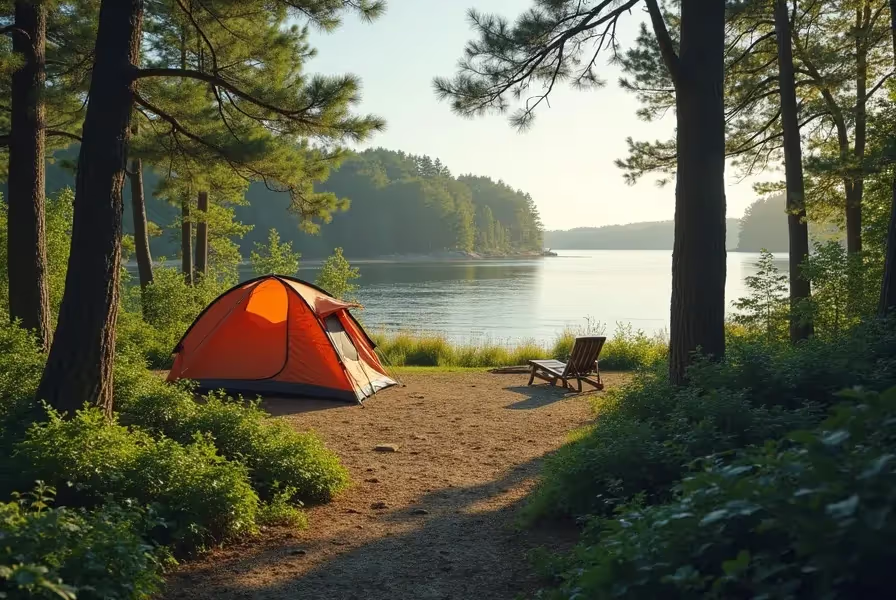The Fascination with Gold Prospecting in West Virginia
Gold prospecting has captured the imagination of many people across the United States. For those living in or visiting West Virginia, the allure of finding gold brings excitement and hope. You might wonder, “Is there gold in West Virginia?” Understanding the state’s geology, history, and local gold hunting opportunities can help answer this question. This guide provides factual, easy-to-digest information about gold in West Virginia, along with tips for gold panning and prospecting in the region.
Understanding West Virginia’s Geology and Gold Potential
Gold is not evenly distributed across the United States. Many know about California’s gold rush, but fewer people are aware of gold’s presence east of the Mississippi. In the Appalachian region, where West Virginia sits, certain geological features can yield traces of gold. However, the state’s geology is less conducive to large gold deposits compared to areas like Alaska or Nevada.
- The Appalachian Mountains run through West Virginia, offering mineral diversity.
- Major gold-producing regions in the U.S. are usually found west of the Mississippi.
- In West Virginia, there are no known commercial gold mines or large placer deposits.
- Traces of gold have been discovered, especially in stream beds and sediments over the years.
Has Anyone Found Gold in West Virginia Streams?
Gold prospecting enthusiasts have long searched for gold in West Virginia’s streams and rivers. If you are hoping for nugget-sized finds, adjust your expectations. Gold discoveries in West Virginia are usually limited to small flakes and fine placer gold dust.
- Small amounts of placer gold have been reported in Patterson Creek and Smoke Hole Canyon in Grant County.
- Shavers Fork, near the Monongahela National Forest, is another area with occasional gold panning activity.
- Gold concentrations are much lower than in states like California or Alaska.
Local prospectors often use gold pans and sluices to extract tiny flakes from creek sediments. Finding even a few gold flecks can be rewarding and fun.
Can You Legally Pan for Gold in West Virginia?
Before heading out to pan for gold in West Virginia, it is important to understand legal and environmental guidelines. Responsible gold prospecting protects natural habitats and respects landowner rights.
- Panning is generally allowed in public waterways, but you must check for local access rules.
- Always seek permission when prospecting on private land.
- Power sluices and mechanized dredges are often restricted or require permits.
- All prospectors should follow the Leave No Trace principle.
Always contact the West Virginia Department of Environmental Protection for the latest regulations before you go prospecting. This ensures you comply with state and local laws.
Best Places to Hunt for Gold in West Virginia
While commercial mining is not viable, recreational prospecting is a popular hobby. Some creeks and rivers are known for trace amounts of gold. If you're planning a gold panning trip, consider targeting these popular gold prospecting locations in West Virginia:
- Smoke Hole Canyon (Grant County): Occasional placer gold found in sandy gravel bars.
- Patterson Creek (Mineral County): Known to yield small flakes and gold dust.
- Shavers Fork of the Cheat River (Randolph County): Popular with modern hobbyists.
- Other small streams in the Potomac Highlands region.
Bear in mind, water levels, sediment movement, and seasonal weather can affect your chance of finding gold. Try prospecting after heavy rains, which may expose new gold-bearing sediments.
What Equipment Do You Need for Gold Panning in West Virginia?
Gold panning in West Virginia is best suited to simple, lightweight equipment. High-tech machinery is discouraged to protect waterways. If you are new to prospecting, start with these essentials:
- Gold pan: A shallow, wide-rimmed pan designed to trap gold particles.
- Classifier or sieve: To separate larger rocks and debris.
- Sluice box: Simple models help you process more material faster.
- Small shovel or trowel: For digging in sand, gravel, or streambeds.
- Snuffer bottle and vials: For collecting tiny gold flakes.
All equipment should be packed in and out; never leave tools or trash behind. Always respect private property and observe local regulations.
Gold Prospecting Clubs and Resources in West Virginia
Joining a local gold prospecting club can enhance your experience and success. Clubs provide valuable education, field trips, and a sense of community among prospectors. You can also access collective knowledge about productive gold panning locations and equipment tips.
- The West Virginia Gold Prospectors Association is active, hosting events and outings.
- Online groups and forums connect hobbyists statewide.
- Regional rock and mineral shows may offer gold prospecting workshops.
Learning from experienced gold hunters lowers the learning curve and boosts your chances of finding gold in the Mountain State.
Related Questions About Gold in West Virginia
Is gold mining profitable in West Virginia?
Gold mining is not commercially profitable in West Virginia. There are no known large gold deposits or mines. Prospecting is limited to small-scale recreational panning for flakes and dust.
What is the best time of year to pan for gold in West Virginia?
Spring and early summer are the best times for gold panning. Snowmelt and rain raise water levels, moving gold particles and exposing new material. However, check stream flow for safety before you go.
Are there gold nuggets in West Virginia?
Gold nuggets have not been reported in West Virginia. Most finds are small flakes or gold dust. Large pieces are extremely rare in this region.
Do you need a permit to pan for gold in West Virginia?
For basic hand panning in public streams, a permit is not usually needed. If you use larger equipment or prospect on private or protected land, permits or written permission may be required. It’s always best to check with local authorities before you start.
Can you keep the gold you find in West Virginia?
Yes, you can keep gold found in public areas if prospecting is permitted. If you find gold on private land, you must have the landowner’s permission, and their terms for sharing or keeping the gold apply.
Tips for Responsible Gold Prospecting in West Virginia
Gold panning is a rewarding outdoor hobby that connects you with nature and history. Here are some tips to keep your adventures respectful and enjoyable:
- Follow all local laws and obtain permissions when needed.
- Respect the environment by minimizing your impact and taking out all trash.
- Be courteous to other prospectors and outdoor enthusiasts.
- Share your findings with local clubs or museums to contribute to regional geological knowledge.
Your chances of striking it rich may be slim, but gold panning in West Virginia promises fun, exploration, and the thrill of discovery. Even a few flakes of glittering gold can make your trip a memorable one and keep the spirit of adventure alive.











.svg)



